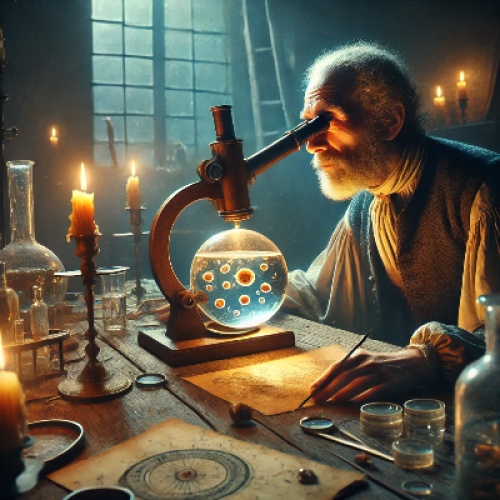One evening, after weeks of labor, he peered through his newest lens and gasped. The drop of water under his microscope wasn't empty - it was teeming with life. Tiny creatures darted, twisted, and spun in a hidden world no one had ever seen.
Anton rushed to share his discovery, but the scholars scoffed. "Invisible animals?" they laughed. "Absurd!" Yet, he persisted, sketching their delicate forms and documenting their movements. Over time, skeptics became believers. His crude microscope had revealed a universe within a drop of water, changing science forever.
The world would come to know him as Antonie van Leeuwenhoek, the father of microbiology - the watchmaker who unveiled the unseen.






